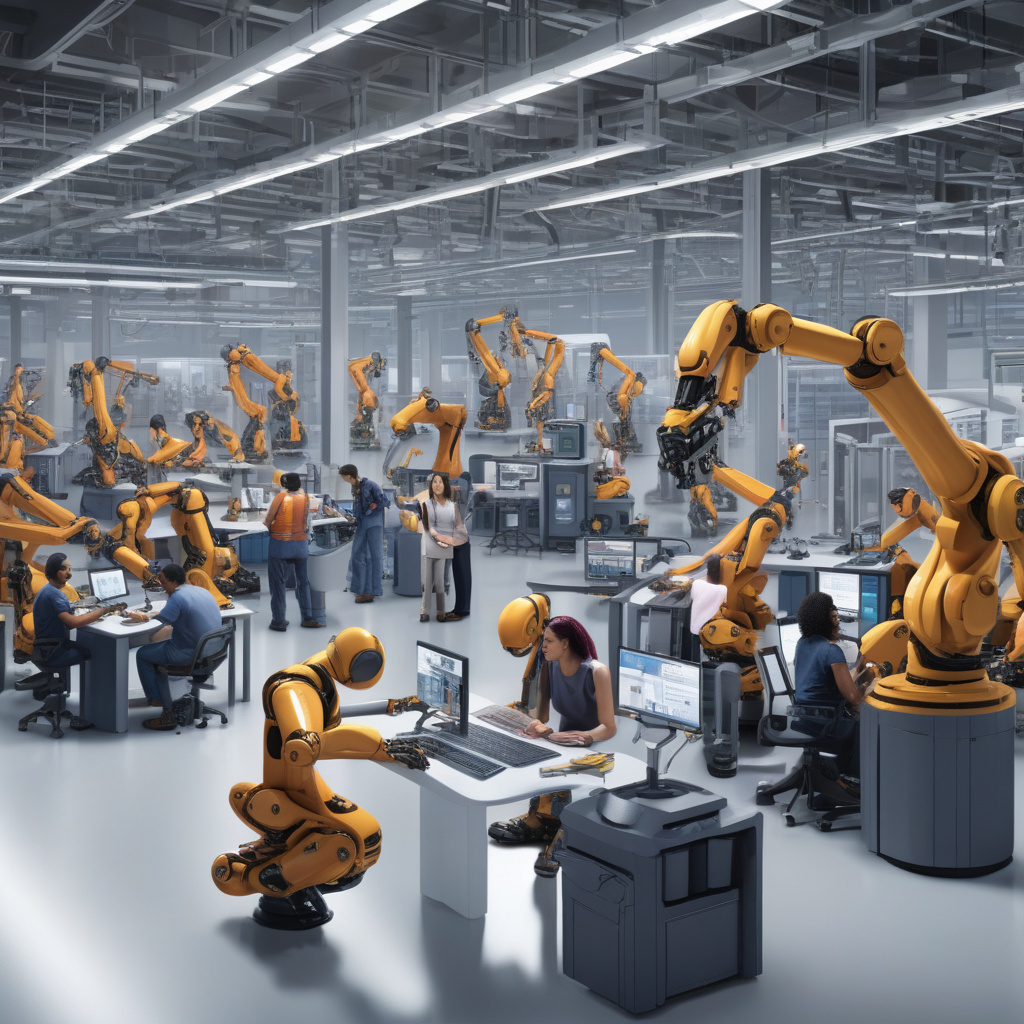GenAI Promises Manufacturing Boost but Firms Lack Readiness
The manufacturing industry is at a crucial juncture, with the promise of generative AI (GenAI) looming on the horizon. According to research conducted by NTT DATA across 34 countries, manufacturers view GenAI as a cornerstone for their digital transformation efforts. However, a staggering 92% of these firms currently lack the necessary technology and policies to harness the full potential of this groundbreaking technology.
Generative AI represents a significant leap forward in the realm of manufacturing. By leveraging advanced algorithms and machine learning capabilities, GenAI has the power to revolutionize key aspects of the manufacturing process. From optimizing production schedules to enhancing product design and streamlining supply chain operations, the potential applications of GenAI are vast and far-reaching.
Despite the undeniable benefits that GenAI can offer, the road to implementation is fraught with challenges for many manufacturing firms. The NTT DATA research underscores a glaring gap between industry aspirations and current readiness levels. Without the essential technological infrastructure and policy frameworks in place, manufacturers risk falling behind competitors who have already embraced GenAI.
One of the primary obstacles hindering the adoption of GenAI is the lack of awareness and understanding among manufacturing leaders. Many decision-makers remain unfamiliar with the intricacies of generative AI and are hesitant to invest in a technology that they perceive as complex and unproven. As a result, there is a pressing need for educational initiatives and awareness campaigns to demystify GenAI and showcase its tangible benefits for the manufacturing sector.
In addition to knowledge gaps, another significant barrier to GenAI adoption is the absence of clear policies and guidelines governing its use. As GenAI becomes increasingly integrated into manufacturing processes, concerns around data privacy, security, and ethical considerations come to the forefront. Without robust frameworks in place to address these issues, manufacturers may struggle to navigate the regulatory landscape and ensure compliance with industry standards.
Despite these challenges, the potential rewards of embracing GenAI in manufacturing are too substantial to ignore. By optimizing production workflows, predicting maintenance needs, and customizing products to individual customer preferences, GenAI has the capacity to drive efficiency, innovation, and competitiveness for manufacturing firms.
To bridge the gap between aspiration and readiness, manufacturers must take proactive steps to prepare for the era of GenAI. This includes investing in upskilling programs to equip employees with the necessary digital skills, collaborating with technology partners to co-create tailored solutions, and engaging with policymakers to shape regulations that facilitate responsible AI adoption.
In conclusion, the journey towards realizing the full potential of GenAI in manufacturing is fraught with challenges, but the rewards are well worth the effort. By addressing knowledge gaps, establishing clear policies, and fostering a culture of innovation, manufacturing firms can position themselves for success in an increasingly AI-driven world.
manufacturing, GenAI, digital transformation, technology, policies
